Mental health nursing is a specialized field within healthcare that focuses on promoting and maintaining the mental well-being of individuals and communities. It encompasses a set of principles and practices designed to address the unique needs of those experiencing mental health disorders. In this article, we will delve into the fundamental principles of mental health nursing, highlighting the core values and approaches that guide this essential aspect of healthcare.
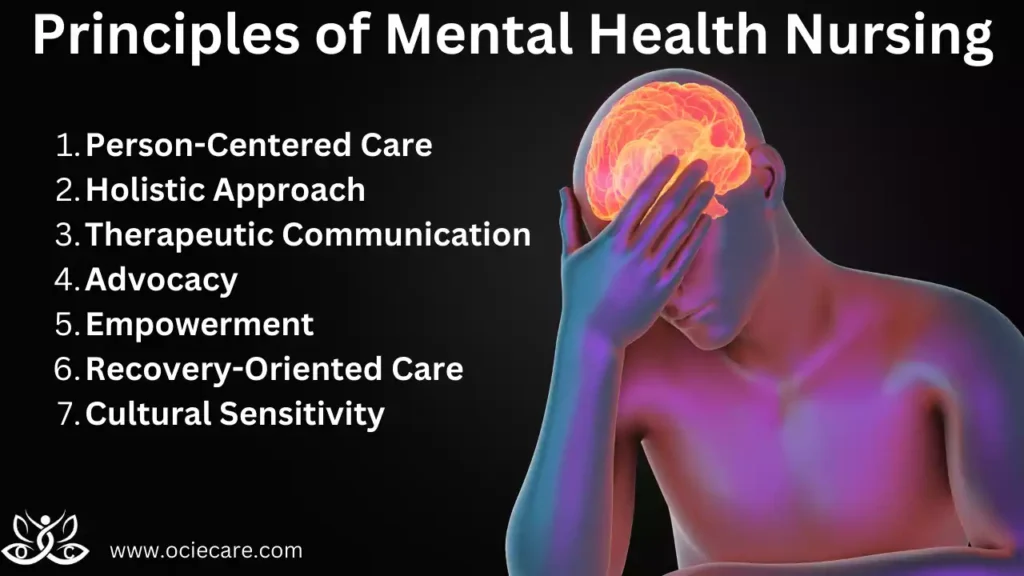
Principles of Mental Health Nursing: A Deeper Dive
Mental health nurses play a vital role in supporting individuals with mental health conditions. Here’s a closer look at some key principles that guide their practice:
1. Person-Centered Care
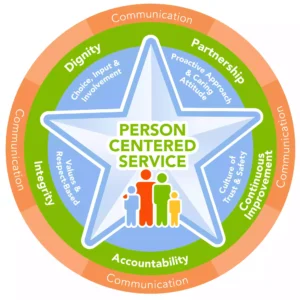
- At the heart of mental health nursing is the principle of person-centered care.
- This approach emphasizes the importance of treating each individual with dignity, respect, and compassion.
- Mental health nurses strive to understand their patients’ unique experiences, preferences, and values, tailoring care plans to meet their specific needs and goals.
- By fostering a therapeutic relationship built on trust and empathy, nurses empower patients to actively participate in their recovery journey.
2. Holistic Approach

- A holistic approach is integral to mental health nursing practice, recognizing the interconnectedness of the mind, body, and spirit.
- Mental health nurses assess not only the symptoms of mental illness but also the underlying factors contributing to a person’s distress.
- This comprehensive assessment encompasses physical health, social support systems, environmental influences, and cultural background.
- By addressing the multidimensional aspects of well-being, nurses can develop holistic care plans that promote healing and resilience.
3. Therapeutic Communication
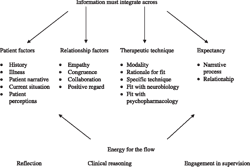
- Effective communication is a cornerstone of mental health nursing, facilitating understanding, trust, and collaboration between nurses and their patients.
- Mental health nurses employ a range of therapeutic communication techniques, such as active listening, empathy, validation, and nonverbal cues, to establish rapport and foster therapeutic relationships.
- Clear and empathetic communication helps patients feel heard, valued, and supported, enhancing their engagement in treatment and promoting positive outcomes.
4. Advocacy

- Mental health nurses serve as advocates for their patients, promoting their rights, preferences, and best interests within the healthcare system and wider community.
- Advocacy involves empowering patients to make informed decisions about their care, ensuring access to appropriate services and resources, and challenging stigma and discrimination.
- By advocating for social justice and equity, mental health nurses strive to create a more inclusive and supportive environment for individuals living with mental illness.
5. Empowerment

- Empowerment lies at the core of mental health nursing, enabling patients to regain a sense of control, autonomy, and purpose in their lives.
- Mental health nurses collaborate with patients to identify their strengths, resources, and goals, supporting them in developing coping skills, self-management strategies, and resilience.
- By fostering a strengths-based approach, nurses empower patients to overcome challenges, build on their abilities, and pursue meaningful and fulfilling lives.
6. Recovery-Oriented Care
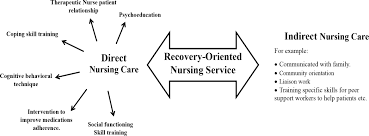
- Recovery-oriented care is a guiding principle in mental health nursing, emphasizing hope, self-determination, and personal growth in the process of recovery from mental illness.
- Mental health nurses recognize that recovery is a unique and individualized journey, influenced by various factors, including personal experiences, social support, and access to resources.
- By providing person-centered and strengths-based care, nurses support patients in reclaiming their lives, rebuilding relationships, and pursuing their goals beyond the limitations of mental illness.
7. Cultural Sensitivity

- Cultural sensitivity is essential in mental health nursing practice, acknowledging and respecting the diverse beliefs, values, and traditions of individuals and communities.
- Mental health nurses strive to provide culturally competent care that is sensitive to the cultural, religious, and linguistic backgrounds of their patients.
- This involves actively listening to patients’ perspectives, incorporating cultural practices into treatment plans, and collaborating with interpreters and cultural liaisons as needed.
- By embracing diversity and cultural humility, nurses can enhance the effectiveness and relevance of their care interventions.
By adhering to these principles, mental health nurses can create a supportive and empowering environment that fosters healing and recovery for individuals with mental health conditions.
Understanding Mental Health Disorders
Mental health disorders are a broad range of conditions that affect a person’s thinking, feeling, and behavior. They can be mild and temporary, or severe and long-lasting. Mental health disorders can interfere with a person’s ability to work, go to school, maintain relationships, and function in daily life.
Here’s a breakdown of the two main categories:
1. Types of Mental Health Disorders
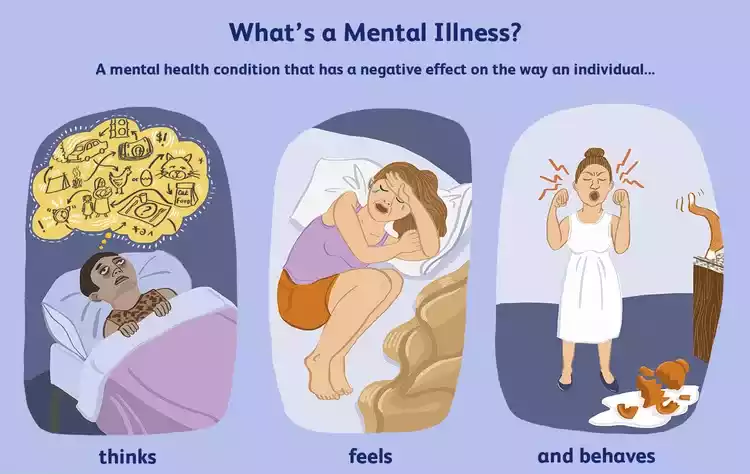
There are many different types of mental health disorders, but some of the most common include:
- Mood Disorders: These disorders affect a person’s emotions, such as depression, bipolar disorder, and cyclothymic disorder.
- Anxiety Disorders: These disorders are characterized by excessive worry and fear, such as generalized anxiety disorder, panic disorder, social anxiety disorder, and obsessive-compulsive disorder (OCD).
- Schizophrenia and Other Psychotic Disorders: These disorders cause people to lose touch with reality, such as schizophrenia, schizoaffective disorder, and delusional disorder.
- Personality Disorders: These disorders involve inflexible and maladaptive patterns of thinking, feeling, and behaving, such as borderline personality disorder, antisocial personality disorder, narcissistic personality disorder, and avoidant personality disorder.
- Eating Disorders: These disorders involve unhealthy eating habits and a distorted body image, such as anorexia nervosa, bulimia nervosa, and binge-eating disorder.
- Post-Traumatic Stress Disorder (PTSD): This disorder can develop after a person experiences a traumatic event, such as a car accident, assault, or natural disaster.
- Attention-Deficit/Hyperactivity Disorder (ADHD): This disorder is characterized by inattention, hyperactivity, and impulsivity.
Obsessive-Compulsive Disorder (OCD): This disorder is characterized by unwanted thoughts and repetitive behaviors.
2. Causes of Mental Health Disorders
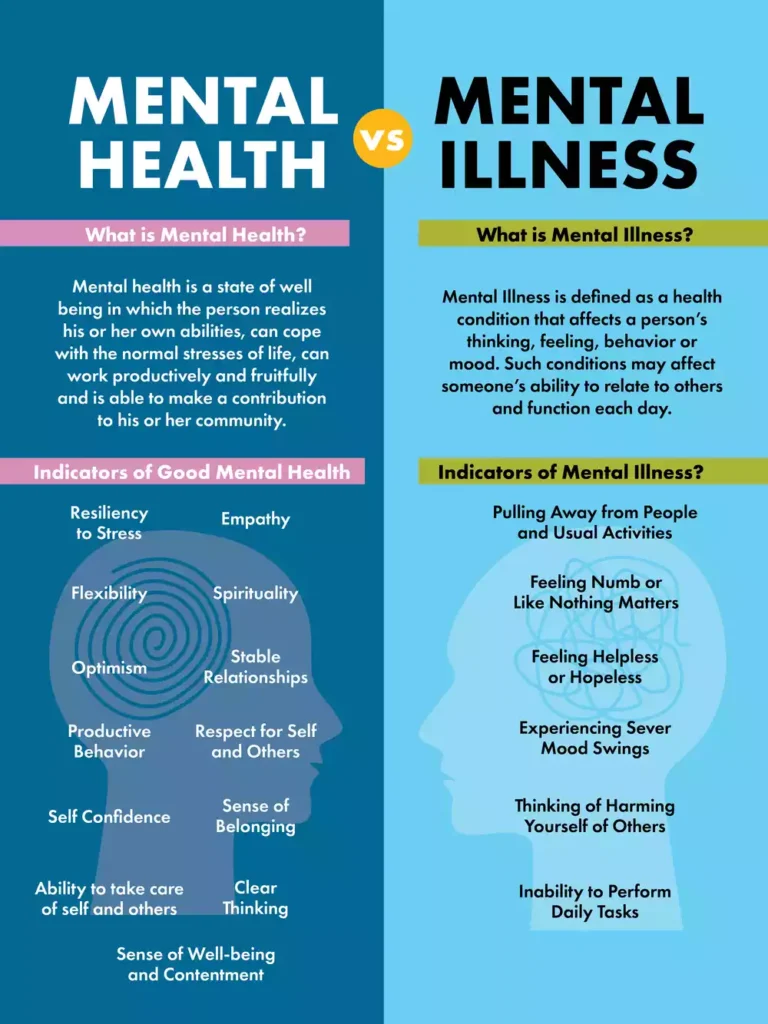
The exact cause of mental health disorders is not always known, but it is believed to be a combination of factors, including:
- Genetics: Mental health disorders can run in families. If a close relative has a mental health disorder, you may be at an increased risk of developing one yourself.
- Brain Chemistry: Imbalances in brain chemicals, such as serotonin and dopamine, may play a role in some mental health disorders.
- Life Experiences: Traumatic events, such as abuse, neglect, or the loss of a loved one, can increase the risk of developing a mental health disorder.
- Medical Conditions: Some medical conditions, such as thyroid problems or brain tumors, can cause symptoms of mental health disorders.
- Substance Abuse: Drug and alcohol abuse can increase the risk of developing a mental health disorder.
It’s important to remember that mental health disorders are treatable. If you think you or someone you know may have a mental health disorder, please seek professional help.
The Role of a Mental Health Nurse
Mental health nurses wear many hats and play a crucial role in supporting individuals with mental health conditions. Here’s a breakdown of their core responsibilities:
1. Assessment and Diagnosis:
Mental health nurses conduct comprehensive assessments to gather information about a patient’s mental health. This may involve:
- Interviews: Gathering detailed information about the patient’s symptoms, medical history, family history, and social environment.
- Mental Status Exams: Evaluating a patient’s current mental state, including their mood, thought processes, and behavior.
- Standardized Assessments: Using standardized tools to assess specific symptoms or disorders.
This information is vital for accurate diagnosis, which often involves collaboration with psychiatrists or psychologists.
2. Treatment Planning:
- Following the assessment, the mental health nurse works collaboratively with the patient and other healthcare professionals to develop a personalized treatment plan. This plan outlines specific goals and interventions tailored to the patient’s unique needs.
3. Medication Management:
In some cases, medication may be a part of the treatment plan. Mental health nurses can:
- Educate patients about their medications, including potential side effects and how to take them properly.
- Monitor the effectiveness of medication and potential side effects.
- Collaborate with psychiatrists to adjust medications as needed.
4. Psychotherapy:
Mental health nurses may provide individual or group therapy sessions, depending on the patient’s needs. These sessions may focus on:
- Cognitive-behavioral therapy (CBT): Helping patients identify and change negative thought patterns that contribute to their symptoms.
- Interpersonal therapy (IPT): Improving communication and social skills.
- Supportive therapy: Providing a safe space for patients to express their emotions and build coping mechanisms.
5. Supportive Counseling:
Mental health nurses also provide ongoing support and counseling to patients. This may involve:
- Helping patients manage their symptoms on a daily basis.
- Educating patients and their families about mental health conditions.
- Connecting patients with community resources and support groups.
6. Crisis Intervention:
Mental health nurses are often on the frontlines of crisis intervention. They are trained to de-escalate situations, provide immediate support, and ensure the safety of patients experiencing a mental health crisis. This may involve:
- Suicide prevention: Assessing suicide risk and taking steps to keep patients safe.
- Helping patients experiencing severe anxiety or psychosis to manage their symptoms and access necessary resources.
The role of a mental health nurse is multifaceted and requires a unique blend of clinical expertise, compassion, and advocacy. They play a vital role in supporting individuals on their journey towards mental wellness and recovery.
Mental Health Nursing: Challenges and Rewards
Mental health nursing, while a noble and rewarding profession, comes with its own set of challenges. Here’s a look at both sides of the coin:
Challenges
- Dealing with Stigma: Mental health conditions are often stigmatized, which can extend to the nurses who care for these patients. Nurses may face societal misconceptions or discrimination.
- Emotional Impact: The nature of the work can be emotionally demanding. Mental health nurses consistently deal with human suffering, which can take a toll on their emotional well-being.
- Stressful Work Environment: Understaffing and long hours can contribute to a stressful work environment for mental health nurses.
- Patient Safety Concerns: Working with patients experiencing mental health crises can involve potential safety risks, requiring nurses to be vigilant and take necessary precautions.
Rewards
- Making a Difference: Mental health nurses have the privilege of witnessing positive change in their patients’ lives. They play a crucial role in supporting individuals on their recovery journey.
- Building Relationships: Mental health nurses develop strong therapeutic relationships with their patients, creating a sense of trust and connection that fosters healing.
- Professional Growth: The field of mental health is constantly evolving, offering opportunities for continuous learning and professional development.
- Sense of Purpose: Mental health nurses contribute significantly to improving mental health awareness and access to care. They have a deep sense of purpose knowing their work makes a positive impact on individuals and society as a whole.
Coping with Challenges
Mental health nurses employ various strategies to cope with the challenges of their profession. These include:
- Self-care: Prioritizing activities that promote mental and physical well-being, such as exercise, healthy eating, and relaxation techniques.
- Social support: Building strong relationships with colleagues, friends, and family for support and understanding.
- Critical reflection: Regularly reflecting on experiences and emotions to maintain emotional resilience.
- Utilizing mental health resources: Seeking help from mental health professionals when needed to address stress or emotional burnout.
While the challenges can be significant, the rewards of mental health nursing are substantial. Nurses who are passionate about helping others and making a positive impact in mental health find this career path deeply fulfilling.
Conclusion
Mental health nursing is a specialized and multifaceted field within nursing. It requires a unique blend of clinical expertise, compassion, and advocacy. Mental health nurses play a vital role in supporting individuals with mental health conditions on their journey towards recovery.
We’ve explored the Core Principles of Mental Health Nursing that guide their practice, such as person-centered care, a holistic approach, and therapeutic communication. These principles ensure that care is patient-centered, respectful of individual needs and cultural backgrounds, and fosters a safe and supportive environment for healing.
Mental health nurses fulfill a diverse range of responsibilities. They conduct assessments, collaborate on treatment plans, and may provide various interventions like medication management, psychotherapy, and supportive counseling. They are also often on the frontlines of crisis intervention, ensuring the safety of patients experiencing mental health crises.
The profession comes with its own set of challenges, including dealing with stigma, the emotional impact of the work, and a potentially stressful work environment. However, the rewards are substantial. Mental health nurses have the privilege of witnessing positive change in their patients’ lives and contributing significantly to improving mental health awareness and access to care. They experience a deep sense of purpose knowing their work makes a positive impact on individuals and society as a whole.
If you’re interested in a career that is both challenging and rewarding, and where you can make a real difference in people’s lives, then mental health nursing might be the perfect path for you.
FAQs
Q. What qualifications do you need to become a mental health nurse?
A. To become a mental health nurse, you typically need a Bachelor of Science in Nursing (BSN) degree or an Associate Degree in Nursing (ADN) followed by licensure as a Registered Nurse (RN). Additional certifications or advanced degrees in psychiatric-mental health nursing may be required for specialized practice.
Q. How do mental health nurses support patients’ recovery?
A. Mental health nurses support patients’ recovery by providing person-centered care, fostering empowerment, promoting self-management strategies, and facilitating access to community resources and support networks.
Q. What are some common misconceptions about mental health nursing?
A. Common misconceptions about mental health nursing include the belief that it primarily involves administering medication or restraining patients, rather than providing holistic, therapeutic care focused on promoting well-being and recovery.
Q. How can cultural sensitivity enhance mental health nursing practice?
A. Cultural sensitivity enhances mental health nursing practice by fostering trust, rapport, and mutual understanding between nurses and patients from diverse cultural backgrounds. It allows nurses to tailor care plans to meet patients’ cultural preferences and needs, improving treatment outcomes and patient satisfaction.
Q. What strategies can mental health nurses use to cope with the emotional challenges of their profession?
A. Mental health nurses can cope with the emotional challenges of their profession by practicing self-care, seeking support from colleagues and supervisors, participating in reflective supervision or counseling, and engaging in activities that promote emotional resilience and well-being.



I have read some excellent stuff here Definitely value bookmarking for revisiting I wonder how much effort you put to make the sort of excellent informative website